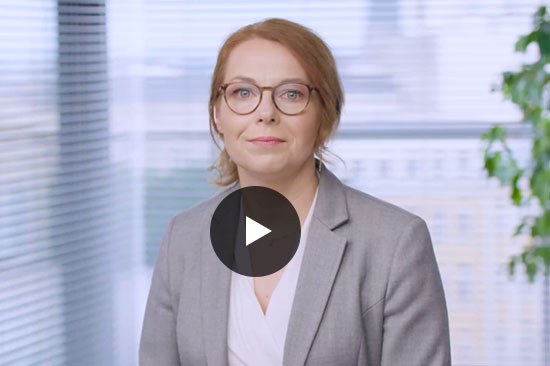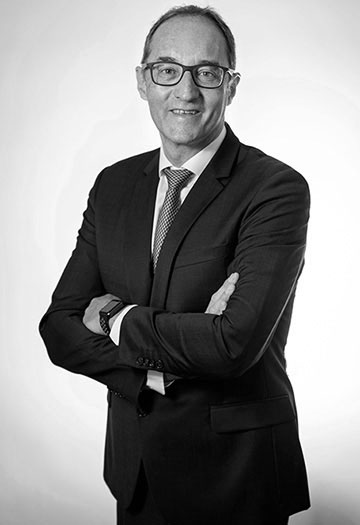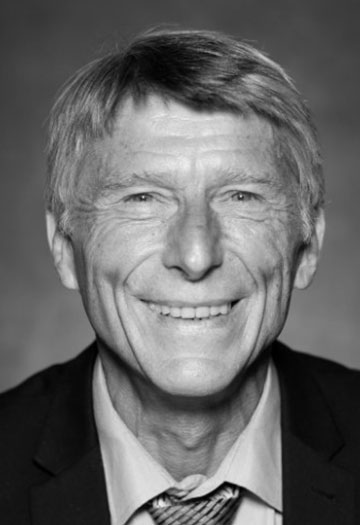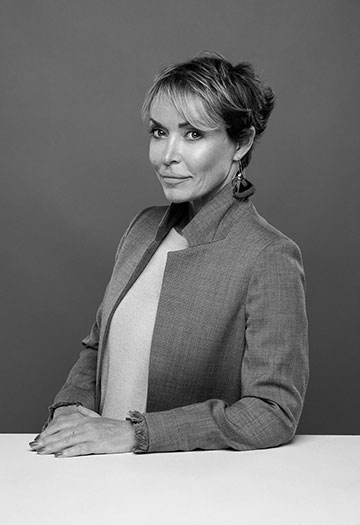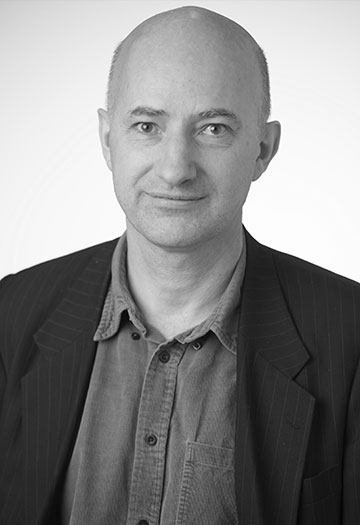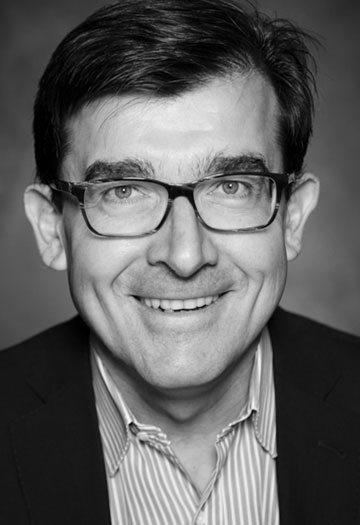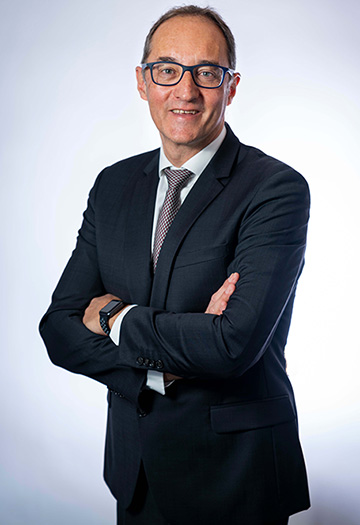TO DEFEND AND PROMOTE YOUR INTERESTS
AS EMPLOYEE SHAREHOLDERS
Sequoia employee share ownership plan
Highlight
employees strengthen their position as Veolia’s largest shareholder
News reports
Sequoia 2022 employee share ownership plan
Please find below the press release about the success of the “Sequoia 2022” employee share ownership plan.
Following the election by Veolia’s employee shareholders of Agata Mazurek-Bak as a director who will represent them on the Board of Directors of Veolia Environnement (VE), Antoine Frérot (AF), the Veolia group’s Chairman, answered the following topical questions put by the members of the governing body of the Association of Veolia Environnement Shareholders (AAVE).
For the good information of the Group’s employee shareholders, AAVE wished to share with them the report of the answers given by Antoine Frérot.
Report on the interview with Antoine Frérot
by AAVE members on Wednesday, April 6, 2022
Employee shareholding
In your opinion, does being a shareholder in your company represent a risk or rather an opportunity for employees?
Antoine Frérot : Being an employee shareholder in one’s company is above all an opportunity for employees, who can thus be associated with the success of their company and become more deeply involved in its development. The level of employee shareholding at Veolia, which currently represents around 5% of the capital (and probably more in the future), enables employee shareholders to be real players who can influence the Group’s decisions. More generally, employee shareholding is a tool that gives employees greater control over their collective professional destiny. In addition, employees’ investment in their company’s shares can also represent a significant additional income.
In summary, the current level of ownership of Veolia’s capital by the Group’s employee shareholders and the appointment of a third director to represent employee shareholders will enable them (i) to be real players, stakeholders in their company, with the possibility of playing a political role by influencing the company’s decisions, (ii) to have an additional vote in the decisions of the Board of Directors in addition to the two votes of the existing directors representing the employees,. The opinion of these 3 directors representing, employees on the one hand, and employee shareholders, on the other hand, will undoubtedly be listened by the other directors, in particular when the Board has to “legitimize” its positions.
Accelerating the sense of belonging to Veolia group of the “new joiners” (ex-Suez) will also be done through employee shareholding. They have high expectations (they have not had a Group plan since 2019). What can we tell them about the next steps?
Antoine Frérot : They will be fully involved in the next employee share ownership plan that will be open to them next September. Once this next employee shareholding operation is completed, the overall level of employee shareholding should exceed 6% of VE’s capital.
What obstacles do you see to the development of employee share ownership?
Antoine Frérot : In the first place, the limit to this development is set by the authorizations for capital increases reserved for employees voted by the shareholders, which cannot reasonably exceed 2% of the capital per year. This is, in fact, the maximum annual level of capital increase reserved for employees accepted by investors.
In addition, employees can sell their shares after 5 years to benefit from the tax advantages linked to this investment. This exit from the capital leads to an erosion of the level of employee shareholding. To compensate for this, the Group has decided to set up recurring employee share ownership plans with an attractive leveraged investment formula. Although this attractive leveraged investment formula represents a significant cost for the company, it maximizes employee investment and ownership of the company’s capital. The success of these employee shareholding operations remains, however, dependent on the confidence of employees in the prospects and development of their company. If this confidence has been regained today, it was severely damaged when the group was going through difficulties until the beginning of the 2010s.
What do you expect from AAVE?
Antoine Frérot : Above all, I would like this association to bring employee shareholding to life within the Group and to play a full role in animating the Group’s community of employee shareholders.
Group governance and merger with Suez
How do you see your role as of July 1, 2022, when you become non-executive Chairman of the Group?
Antoine Frérot : I would like the Chief Executive Officer who will be appointed to have all the prerogatives associated with her position and it will be her responsibility, in particular, to propose the Group’s strategy to the Board. My role as Chairman of the Board of Directors will be to define and lead the work of the Board. It is essential that the Chief Executive Officer assumes all the prerogatives of general management and, as far as I am concerned, it will be my responsibility to remain the guarantor of the commitments made in the context of the merger with Suez. The Group’s objectives must be in line with Veolia’s success in becoming the benchmark company for ecological transformation. The completion of the merger with Suez will lead to the definition of a new strategic plan. I will, of course, remain fully available for any advice that the General Management may wish to ask me.
Will the integration of Suez have an impact on the organization of the Group?
Antoine Frérot : There will be no fundamental change in the current organization of the Group, but essentially larger or denser geographical zones with a greater number of countries covered by the Group’s activities. All the directors of the geographical zones have become members of the Group’s Executive Committee (ExCom). While this reorganization of the geographic zones may be accompanied by decentralization and greater autonomy, the Group’s headquarters will retain its central “steering” role to ensure that the Group’s strategy is deployed in a coherent manner across the world.
Will the integration of Suez open up new avenues for innovation?
Antoine Frérot : This subject remains to be explored in greater depth in the context of the future strategic plan but, at this stage, the inventory carried out has not revealed any truly new innovation themes. Consequently, the existing major themes should not change, but the number of “seeds” (new development projects) within these existing major themes should multiply.
What do you think will be the impact of this geopolitical crisis on the Group on a macro-economic level?
Antoine Frérot : This crisis will increase customer interest in locally produced renewable energies. As regards the general increase in the cost of energy used by the Group, its effects on our contracts should be fairly limited due to (i) the indexation of a large number of our contracts and (ii) the implementation by the Group of a policy of protecting its energy purchases by entering into forward purchase contracts with our suppliers, which make it possible to secure prices for the duration of these contracts. This protection of energy purchase prices over the term of these contracts gives us time to prepare for the renegotiation of energy purchase prices by mid-2023.
Regarding inflation in general and its impact on the cost of labor for employees, we will have to manage this potentially significant “bump”. As regards the effects of this inflation on the prices of our contracts, and in particular our public procurement contracts, the indexation provided for in these contracts and the lessons learned from the past in a similar context have shown that the Group knows how to manage this type of context and adapt. We will have to pursue our strategy of upgrading the services offered by the Group.
What impact could a stagflation scenario have on our customer portfolio?
Antoine Frérot : Our municipal customers will certainly ask to share the price of recycled materials. Given our long-term municipal water and utilities contracts, which are indexed with formulas that generally reflect our cost structure, we are fairly well protected. There could be an impact on our industrial and waste collection contracts, given the strong competition.
On the other hand, in our contractual formulas, we have a fairly conservative coverage policy. On the price of energy, as we are both seller and buyer, the balance sheet is fairly well balanced.
Could the current geopolitical crisis lead to disruptions in the supply chains for certain key raw materials and fuels used by the Group’s facilities? In this context, how are relations with the group’s suppliers evolving?
Antoine Frérot : At this stage, few sites are affected by a supply chain disruption problem. There is the case of the water treatment facilities in Armenia, where there is currently a difficulty in obtaining supplies of chlorine. In addition, the Group is subject to gas purchases in Hungary.
As regards relations with suppliers, in general they are trying to impose sharp price increases. The management of this situation aims to renegotiate “long” contracts with them in order to obtain greater price stability through long-term commitments.
What is the Group’s level of exposure to the geopolitical risk of the Russian-Ukrainian conflict?
Antoine Frérot : The Group’s economic exposure in these two countries is low, since they represent total revenues of approximately €120 million (i.e., 0.3% of revenues) and €130 million in terms of capital employed (i.e. less than 0.5% of the capital employed of the Veolia-Suez group). The activities conducted in these two countries are mainly dedicated to the provision of essential services to the population (1,800 employees in Russia and 350 in Ukraine). In the context of this conflict, Veolia will of course comply with all the sanctions applicable to Russia, which require that it no longer buy or sell goods or services to it. Regarding the centralization of the Group’s cash flow, financial relations with Russian subsidiaries have therefore been suspended.
In the context of a review of the Group’s strategy, will there be a change in the content of the Group’s plural performance?
Antoine Frérot : The Group’s purpose (“raison d’être”) will remain the foundation of this plural performance. In terms of communication, it will be necessary to produce a summary of this purpose (raison d’être) and put it together in a short title. It is true that the criteria for the plural performance of this raison d’être are probably a little too numerous (18). It would be advisable to reduce the number of these criteria to improve their readability for our investors and stakeholders. For the allocation of performance shares, the number of non-financial criteria, which has been nine until now, could be reduced to four. While remaining faithful to the Group’s raison d’être, the idea is to keep the criteria related to the mix of people, the volume of recycled plastics, the GHG emissions avoided, the number of inhabitants benefiting from access to essential services (water and cleanup activities)
In the context of the recycled products produced by the Group, does the Group plan to develop recycling or recovery of rare earth or metals?
Antoine Frérot : The recovery of rare metals, particularly lithium, requires time to develop the processes. In this case, it would be necessary to convince customers of the benefits of paying a slightly higher price because of the difference between the market price of these rare metals and the price of the same recycled product, at least for a few years, the time it takes to increase the volumes recycled.
Human resources management
At a time when there is strong pressure on the job market in certain BUs, what measures are envisaged in terms of “talent retention”, given that for some years now salary reviews have been “very measured” and that there may be a possible discrepancy with the remuneration conditions of Suez employees? Do you think that the feeling of usefulness of our businesses is sufficient to retain talent?
Antoine Frérot : On the one hand, we need to mobilize employees on the company’s purpose (“raison d’être”) and the usefulness of our businesses. On the other hand, as far as compensation is concerned, the HR Department periodically checks through internal and external benchmarks that compensation is well within the market range. In fact, there are no major differences compared with Suez employees. While Veolia’s compensation is not really “higher” compared to other businesses, it can be considered “resilient. The Group is attractive because its businesses are buoyant, pleasant, and changing, and have the advantage of not being relocatable. Veolia has fully understood the importance of its stakeholders and its employees, who are an integral part of the company. In today’s unstable times, for many employees, work is an important “compass” in their lives and a “fixed point” of stability.
Our commitments
AAVE is a French non-profit association independent of all political or trade union organizations and administered by an elected Board of Director. Ever since its creation, it has actively represented employee shareholders in the Group’s decision-making bodies.
To target a 10% share of equity capital for employee shareholders
by pursuing our strategy to ensure that in the medium term, employees hold 10% of the company’s equity capital, and become the Group’s largest and most influential shareholder. ![]()
NICOLAS GERMONDPRESIDENT
To be your voice
in the decision-making bodies of Veolia and be a stakeholder contributor to the strategic choices made by the Group, especially when voting on resolutions at shareholder meetings. ![]()
ANNE-CATHERINE PELISSIERMANAGEMENT BOARD MEMBER
To promote a persuasive, regular and secure policy of employee share ownership
by bringing forward new ways of rewarding shareholders who retain their shares for the long term, such as higher dividends or – as is already the case – double voting rights for all loyal shareholders, which employee shareholders are a prime example. ![]()
NICOLAS RENARD
MANAGEMENT BOARD MEMBER
To work with you and support you with regular information
To work with you and support you with regular information about the various profit-sharing techniques available to optimize the savings you have invested in the Group, depending on your own plans and finances. ![]()
THIERRY PAGNIEZ
MANAGEMENT BOARD MEMBER.
To unpack and analyze the latest news from the Group
through the lens of employee share ownership and adopt a position on the basis of our analysis. ![]()
JEAN-BAPTISTE DUCHATEAU
MANAGEMENT BOARD MEMBE
Our representatives
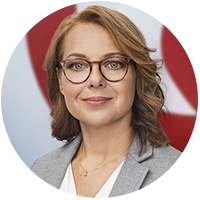
Agata MAZUREK-BAK
Human Resources for the Central & Continental Europe and Veolia Poland
Agata Mazurek-Bąk joined the Group in 2005 with a background in finance and audit (as a statutory auditor), and substantial experience in human resources and operational optimization.
Fluent in Polish, English and French, Agata plays an active role in the French Chamber of Commerce & Industry in Poland, as well as in organizations that support the ecological transition and gender equality in business.
Because I’m committed to aligning the interests of employees and shareholders as closely as possible, and contributing to sustainable growth through my understanding of Veolia, its core businesses, the mechanisms of value creation and the importance of diversity. I want to promote employee share ownership as a tool for motivating our people and retaining our most talented individuals. I also want to contribute the international perspective of employee shareholders from high-growth countries, as well as that of parents, for whom the ecological transformation is a duty owed to future generations.
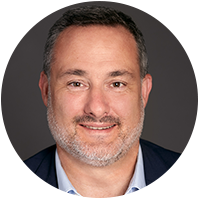
Romain ASCIONE / Alternate representative
Regional Director for the South of France (PACA) at Veolia RVD
Originally trained as an engineer, Romain Ascione joined the Water Division of the Veolia Group in 2009, and successfully filled a succession of operational roles in the regions of France. He joined Veolia Recycling and Waste Management (RVD) in 2020 as its Regional Director for the South of France (PACA).
My career in small businesses, midsize companies and corporate groups, and the operational experience I’ve gained with Veolia over the past 12 years, have given me a detailed understanding of the practical aspects of the ecological transition and, perhaps more importantly, the visions and expectations our customers have of it. The Veolia Group is able to meet those expectations, and I want to work within AAVE to generate greater interest in employee savings and promote an attractive, regular and secure policy of employee share ownership.
Our bodies
The AAVE office is composed of:
- NICOLAS GERMOND – See biography
President - JEAN-BAPTISTE DUCHATEAU – See biography
Vice-President - THIERRY PAGNIEZ – See biography
Treasurer - ANNE-CATHERINE PELISSIER – See biography
Vice-Presidente - RONALD WASYLEC – See biography
Vice-President
- NICOLAS GERMOND
President - THIERRY PAGNIEZ
Administrator - ANNE-CATHERINE PELISSIER
Administrator - NICOLAS RENARD – See biography
Administrator - RONALD WASYLEC
Administrator
AAVE also represents Veolia employees in the supervisory board for FCPE of Veolia PEG.
Join us
The Veolia Environnement Employee Shareholders Association (AAVE) implements a database intended for the purpose of its external communications and only collects personal data that are strictly necessary and relevant for this intent.
The data are not transferred to third parties other than the AAVE’s providers or any competent authority.
You are entitled to access, rectify or delete the information that concern you; you may exercise this right by sending an E-mail to aave@veolia.com
Pre-requisites for joining the association:
- Hold at least one Veolia Environnement share, either directly or via a fund that invests in the company’s shares (E.g. PEG and plan Sequoia)
- Be an employee, former employee or retired former employee of one of the Veolia Group’s companies
* Required fields
